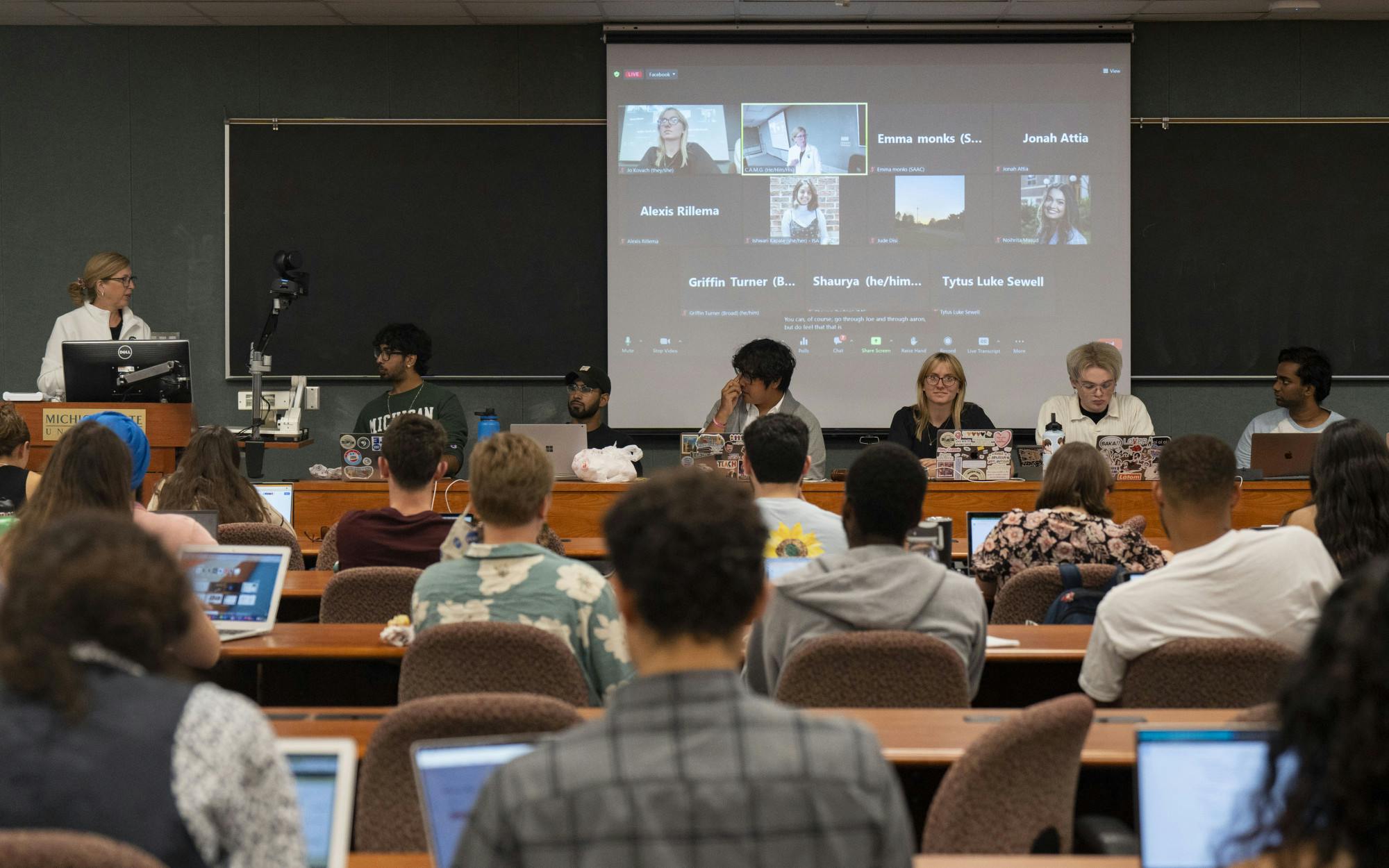Four bills were passed in preparation for the final general assembly of the semester next week at the Associated Students of Michigan State University, or ASMSU, academic committee meeting.
Among the four were two bills to advocate for better on-campus access to condoms and other forms of sex protection. Both introduced by Agriculture and Natural Resources Rep. Prestly, the bills ask the university to supply free condom dispensers across campus restrooms and to increase the supply of safe sex products in Sparty’s convenience stores.
“MSU doesn’t really practice inclusive, safe sex practices, especially for those in financial need ... there are very limited places on campus where you can get free condoms,” Prestly said.
Currently, free condoms are available at Olin Health Center, in some areas of the Student Services Building and in some residence hall bathrooms supplied by residential assistants. Students can also purchase various forms of sex protection in Sparty’s convenience stores.
In June 2021, ASMSU passed a similar bill to include free menstrual products in all on-campus restrooms. Since then, free menstrual products have become available only in women’s restrooms on the first floor of academic buildings due to a lack of supply and funds. Lyman Briggs Rep. Mandwee expressed concerns that a similar slow response from the university could occur with the passing of the two condom accessibility bills.
“We were promised by administration that there would be menstrual products all over campus and that they would be refilled by the university and that didn’t happen,” Mandwee said.
The funding for free condoms across campus would likely come from grants and donations, just like the free menstrual product initiative, said vice president for academic affairs Aaron Iturralde.
Despite Mandwee’s concerns, both bills passed with no objections and will be introduced to the general assembly next week.
“There is a stigma around safe sex,” Prestly said. “By doing this, it just makes us more sex-positive. By limiting condom accessibility it’s just risking more students’ health.”
Also in advocacy for greater campus-wide health was a bill to make wastewater data for communicable disease tracking available to the public. The bill was introduced by the Council of Students with Disabilities Rep. Maddie Tocco.
“We’re still dealing with COVID, cases are rising, people are dying,” Tocco said.
Last spring, data on positive COVID-19 cases at MSU became unavailable with the retirement of the Spartan Spit program. Wastewater tracking data could replace this gap, as well as provide data for cases of influenza and respiratory syncytial virus, or RSV, Tocco said. The data would be available on MSU’s website.
The bill passed unanimously and will be introduced at the next general assembly.
Introduced by Iturralde, the final bill to be passed in the academic committee was an outline for the presidential search process and a finalized recommendation of the student makeup in the presidential search committee.
The bill advocates for a process in which the MSU committee can interview the final candidates and a search team comprised of a minimum of four undergraduate students representing the student governance organizations on campus.
“We want the process to be robust, transparent and accountable to the MSU community,” Iturralde said.
The bill passed with no objections.
The last ASMSU general assembly meeting of the semester will take place on Dec. 8 in the International Center room 115 at 7 p.m.
Support student media!
Please consider donating to The State News and help fund the future of journalism.
Discussion
Share and discuss “What to expect at the last ASMSU general assembly of the semester” on social media.







